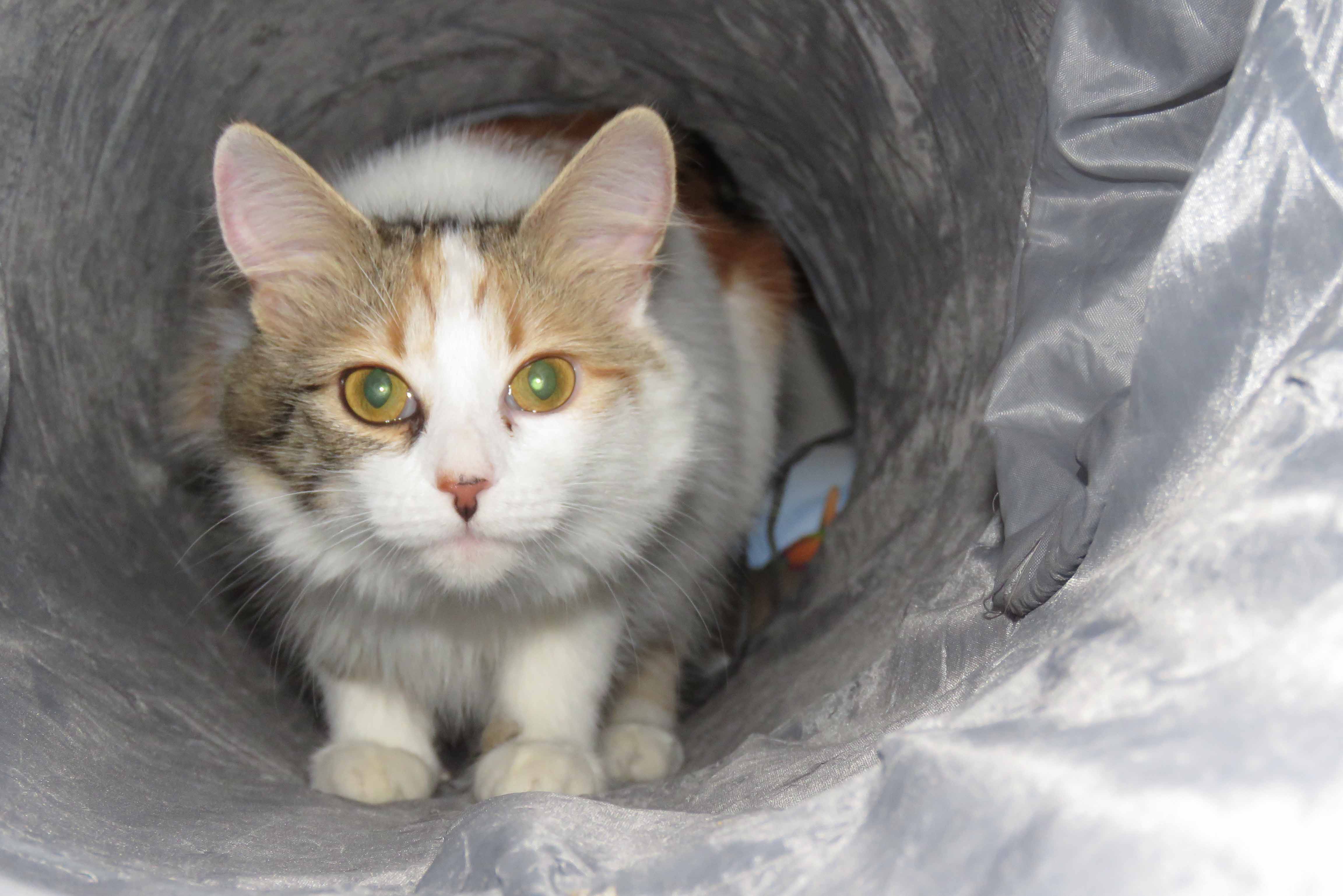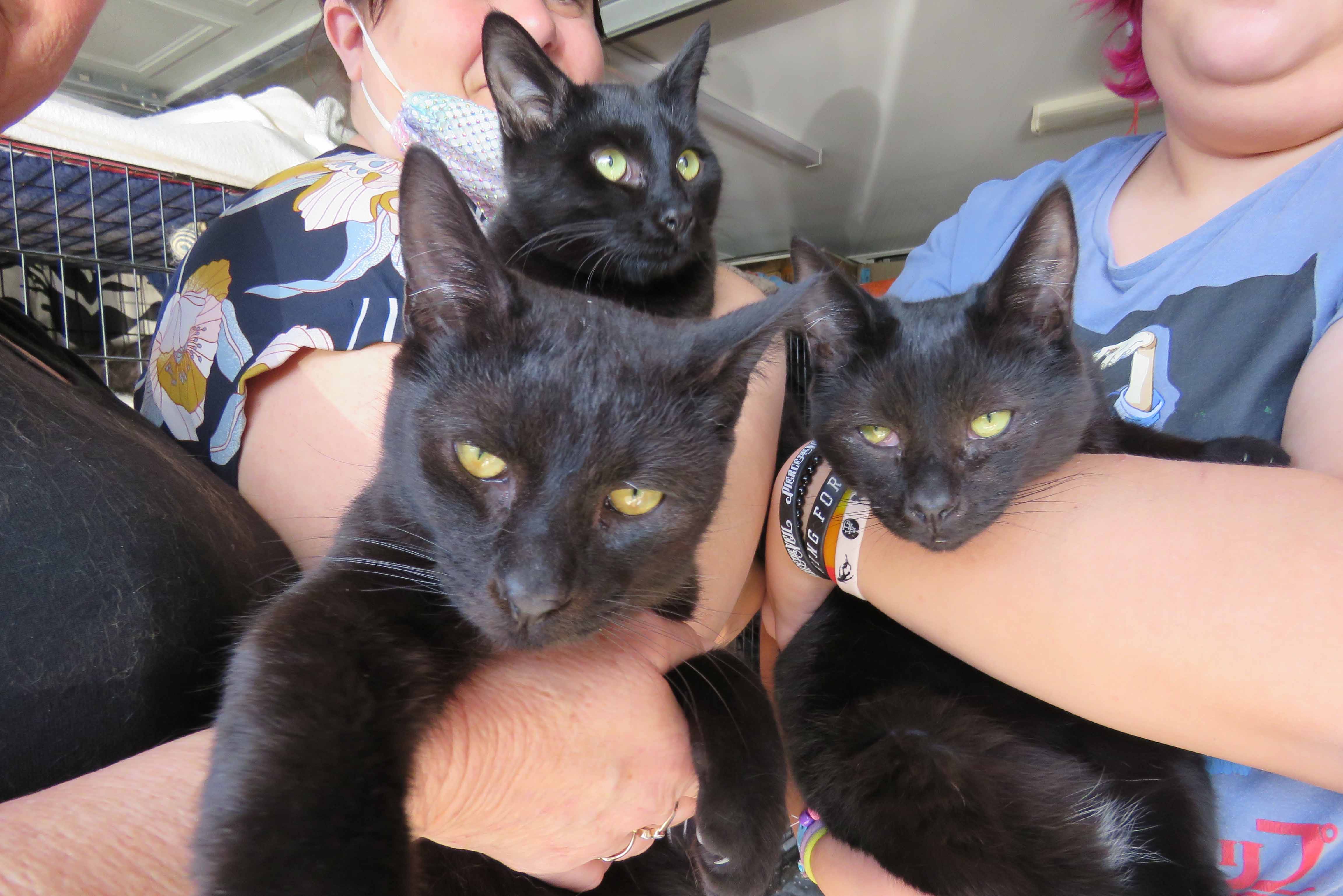Catherine Sharp has become Katikati's ‘go-to' lady when residents discover dumped, stray or colonies of un-homed cats and kittens.
Catherine and her volunteer team of helpers – including daughter Rebecca, grandson Tydence, Rylous, Millie and Ying – have re-homed an estimated 200-plus cats since they began about two years ago.
But the Katikati Cat Rescue is itself in need of help – not only is the group's coffers nearly empty – but kitten season is here and they still have 27 older kittens and cats needing homes.
'This time of year is really hard because it's kitten season,” says Catherine 'People would rather wait for a cute little kitten than take one of these older kittens or older cats.”
The rescue is based at Catherine's Katikati home – her garage is full of older kittens and cats ready for their forever homes. 'When I moved into my house I didn't have a cat-door so left my garage door open. A cat come in and beat up my cat. We couldn't find her for a month.
'When she returned she was walking on the backs of her paws; she'd taken the skin off her back feet.
'We tried everything to get her better …but eventually didn't come back from it. So we thought we would give back for all those cats out there – and we had no idea what we were getting into.”
With no vet experience Catherine soon learnt how to care for felines – and she's always been a cat person. Growing up her dad had a fish shop at Waihi Beach and stopped the population spreading there. 'We had 49 cats at one stage. I used to catch the kittens and put them in sacks to take them to people to adopt – I'd have blood all up my arms because they were wild.”
Catherine now takes calls from the public as well as the SPCA to collect, trap and rehome cats in Katikati. Cats are trapped, if required, and quarantined for two weeks. Newborns are hand-reared and older strays are tamed and socialised to ensure rehomed felines settle in successfully.
Katikati Rescue Cats runs off the smell of an oily rag – recently it spent its last lot of funds. Now the SPCA's Snip ‘n' Chip service will complete desexing of cats. What people don't realise is KRC cannot get back those funds until the cats are rehomed,” says Catherine, who also offers accredited microchipping to raise funds for the rescue.
The rescue's costs include large amounts of kitty litter, food and veterinary and healthcare expenses. The rescue does not receive funds from the SPCA, instead relying on donations of product, care and funds from the public and local pet-related businesses. Out of The Wild petfood and Marion's Gardens Bins and resident Lee Drummond are big sponsors of the rescue.
'I do have a huge network that help me – I'd like to thank fosters in helping train the wild cats – and but it is not easy financially,” says Catherine, who first-hand knows of at least three cat colonies around the Katikati area.
'What happens is people feel sorry for them and feed them. They think they're doing a good thing but they don't get them desexed. They feed what we call ‘the Queen' and she'll go on to have up to six or more babies – they grow and start having babies.”
The results is cats living in neighbourhoods with no official residence, healthcare or owners. 'Tom cats can smell on-heat cats for miles – and the problem just exacerbates,” says Catherine.
Moreover, colonies enable in-breeding of cats 'and that's where health problems occur”. The group is also contacted by Katikati residents who discover dumped cats. 'There's been a lot of dumping this year”. Some people move and don't take their cats, some can no longer afford them, others cannot understand how to house-train cats.
'We've collected about 80 so far this year alone – and the kitten season is here.”
To rehome a cat, call Catherine on 021 401 806 or see: Katikati Rescue Cats' on Facebook. To donate funds, see: https://givealittle.co.nz/cause/help-the-strays-of-katikati or buy a raffle ticket Professionals' office in Katikati.

Katikati Cat Rescue has older kittens that are ready to be rehomed. Photo: Merle Cave.

